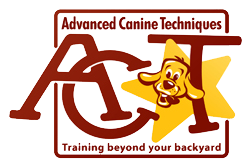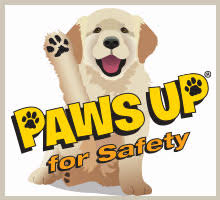There are some helpful things to do as a pet owner to prepare and plan ahead in case of emergencies. There are also things you can do to help the day-to-day needs of your dog. Here is my top 10 list- not in any particular order! I recommend working on this list item by item so by the end of the year so you have plans in place and can have peace of mind. You never know when an emergency may happen, so it is better to have a plan and people in place to assist when needed.
- Prepare a pet will – I often hear of family members having to rehome pets or pets ending up at shelters or rescues. If you have a pet, invest in preparing a trust or will and ensure someone will take care of your pet in your absence. https://www.tiaa.org/public/offer/insights/W2W/family-finances/Set_Up_A_Pet_Trust_In_5_Simple_Steps
- Travel safety – in addition to using a crate or seat belt, I recommend having some type of pet safety instructions in your vehicle in case of an accident. I like the ones that have the pet’s personality, contact information, description of the pet and any other information that may be helpful for law enforcement or emergency personnel if there is a car accident or injury. This is a great site with helpful information and what information to include. https://www.successjustclicks.com/creating-a-canine-travel-emergency-kit/
- Flea, tick and heartworm – we recommend making sure your pets are current on preventatives throughout the spring, summer and fall. Sometimes you may not need to do this in the winter, but it is good during the hot weather to ensure your pets are protected. In addition, do a thorough body massage each night to check for bug bites or ticks in the summer.
- Work on handling your pet – your vets and groomers will thank you. Make sure you can touch your pet all over and work on having other people handle their feet, rub their head, check their teeth, etc. Work on brushing them, massaging them and having them get used to grooming tools such as dremels, dryers, scissors, clippers, etc.
- Buy food in bulk (medications too)-what did the pandemic teach us? Make sure you have extra food, medical supplies and treats on hand. We learned quickly how important toilet paper was. We also learned that many companies had delayed shipping due to everyone stocking up on pet food all at the same time. Plan ahead and make sure you have at least a 2 month supply of food, treats, medications and preventatives.
- Invest in training – A trained dog is a joy to be around and easy to travel with. The more you work on training and building that relationship and trust with your pet, the easier it will be to work with them when your schedule changes, you move or need house renovations completed.
- Purchase high quality food/treats- this will help with the longevity of your pet and has a multitude of benefits. Less poop, gas and toxic smell, less vet visits, longer life span, you can feed less since you are providing a higher quality of food and better behavior. The dogs will absorb the higher quality of food and it fuels their brain and body.
- Have stool sample checked yearly – we recommend having a stool sample checked yearly to ensure you dog doesn’t have worms or any type of intestinal parasites. I usually do this when my dogs have their yearly check-up. Talk to your vet about titers vs vaccinations and we recommend the 3-year options when available for rabies and distemper.
- Socialization for your pets (sounds, sights, etc)- help with the 4th of July, thunder, etc. The more you help your dog get used to sounds, surfaces, places, people, items, etc., the more they will become confident and comfortable when they encounter those situations. Keep it short and simple but practice often!
- Pet First Aid – keep a list of safe human foods for dogs and human foods that are toxic to pets. Get to know the landscape in your yard (plants, shrubs, flowers, etc). We recommend taking a pet first aid class, so you know what to do in case of emergencies but also pet proof your home and garage. The more you know, the more you are able to safely care for your pet and know what they may get into or have access too. This goes for visiting family members and traveling to parks and on vacation. Always keep a copy of your dog’s vaccination records with you (in your car, in your first aid kit, in the house, etc, and become familiar with the local vet clinic anywhere you are visiting.
We hope this list is helpful! Please share your progress as you work on the items over the course of the year.

